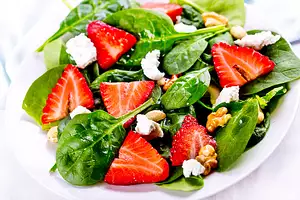We raise our children observing our own lifestyle and eating habits. Modeling positive examples of healthy living impact our kids from an earlier age.
Studies show that children of parents who smoke are much more likely to take up the same addictive, dangerously unhealthy habit.
Parents also play the most important role in their children’s lives when it comes to healthy eating habits and food choices.
Childhood obesity is a growing epidemic in most industrialized nations, leading doctors, researchers and parents wanting to know why kids are growing more obese than in past decades – and what to do about it.
However, some studies have found that a large contributing factor to the childhood obesity epidemic is that “many parents of overweight children are either unaware that their children are overweight or do not consider it a threat to their children's health.”(1)
Parents must be aware of the dietary choices that they make for themselves, and the foods that they purchase and prepare for their kids.
The modern diet - made up of fast food meals and highly processed high-salt and high-fat foods - is a major contributor to health risks ranging from obesity to diabetes and heart disease.
Being aware of the ingredients and nutrient content in the food choices that we feed our kids is a step in the right direction.
A word on soda pop: “Children who regularly consume soft drinks had a higher level of total energy consumption compared with children who do not. Further, the same children who regularly drink soda have an increased likelihood of overweight and obesity.”(1)
The liver processes sugars (glucose and fructose) differently, and high fructose corn syrup (HFCS) has been linked to numerous health problems, including substantial weight gain compared to kids who do not consume as much (or any) soda pop.
Drinking a lot of soda and other processed foods with HFCS can also make kids insulin resistant, and more likely to develop diabetes later in life.
Providing healthy meals and encouraging nutritious food choices in the home is a great way to help kids maintain an average weight and better over-all health.
New research shows that the way parents talk to their kids about weight loss and health is just as important as modeling healthy lifestyle and eating habits.
This 2010 study found that parents who emphasized weight, weight-loss, body image or dieting instead of healthy eating choices (without an emphasis on weight or body image) had teens who were more likely to develop eating disorders and other unhealthy dietary choices.(2)
The moral of these findings is that kids not only need healthy foods, but also a healthy view of their own body weight and shape. Negative body image in teens can lead to unhealthy and dangerous choices while trying to lose weight – whether or not they are actually overweight.
The best things parents can do to keep their kids healthy and promote positive eating habits is to set guidelines within the home, and be sure to follow them as well.
The major factors that lead to childhood obesity (excluding genetic factors) “include a low level of physical activity, excessive hours watching television and using computers recreationally, frequent consumption of fast foods, inadequate consumption of fruits and vegetables, a preference for fatty foods, environmental factors such as types of foods available and eating patterns of the family.”(1)
Encouraging your kids to be more active, spend less “screen time,” limiting the amount of high fat fast foods and eating more fruits and vegetables will help ensure that they do not become overweight or obese in the first place.
Buy fresh produce and prepare homemade meals together. Be a role model when it comes to healthy eating and exercise habits – and limit the amount of junk food in the home.
Restrict soda pop and sweets for special occasions, not because they are “fattening,” but because they aren’t healthy and should only be enjoyed in moderation.
Parents, whether or not their children are overweight, should talk to their kids about healthy choices, not ideal body weights or images. We should be more concerned about our kids being happy and healthy, not using our well-intentioned (though sometimes misguided) words to contribute to possible negative self-image and eating disorders down the road.
First and foremost, parents are their children’s most influential role models. Lead by example when it comes to choosing nutritious food choices and healthy physical activity.
SOURCES: (1)Howard, K. (2007). Childhood overweight: parental perceptions and readiness for change. The Journal Of School Nursing: The Official Publication Of The National Association Of School Nurses, 23(2), 73-79.
(2)American Medical Association. Berge, J.M., et al. (2012). Conversations with teens about weight linked with increased risk of unhealthy eating behaviors. JAMA Pediatrics. doi: 10.1001/jamapediatrics.2013.78
Image courtesy of photostock / FreeDigitalPhotos.net










Comments